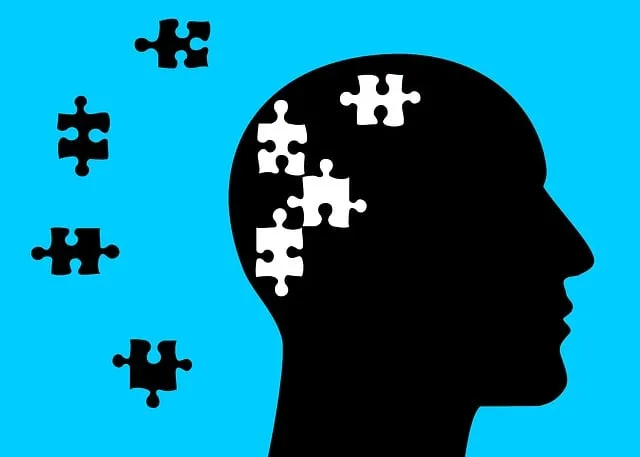The rising global demand for mental wellness coaching, exemplified by the Lafayette Kaiser Permanente Mental Health Access Center, underscores the recognition of mental health as a cornerstone of overall well-being. The center offers personalized, evidence-based programs combining CBT, mindfulness and self-reflection to empower individuals in managing stress, anxiety, and other challenges. Their success relies on cultural competency training, "Mind Over Matter" principles, regular journaling exercises, and comprehensive evaluation methods, all aimed at fostering a resilient, supportive community through accessible mental health care.
Mental wellness coaching programs have emerged as a crucial component of holistic healthcare, addressing the growing need for accessible support. This article explores the development and impact of such programs, focusing on the innovative approach by the Lafayette Kaiser Permanente Mental Health Access Center. We delve into key aspects, from understanding the demand to designing effective curricula, implementation strategies, and measuring success. By examining these elements, we aim to highlight how coaching can revolutionize mental health support within healthcare systems.
- Understanding the Need for Mental Wellness Coaching Programs
- The Role of Lafayette Kaiser Permanente Mental Health Access Center
- Designing Effective Coaching Curricula and Techniques
- Implementation Strategies for Success
- Measuring Impact and Continuous Improvement
Understanding the Need for Mental Wellness Coaching Programs

In today’s fast-paced world, the demand for mental wellness coaching programs has never been more pronounced. Initiatives like the Lafayette Kaiser Permanente Mental Health Access Center highlight a growing recognition of mental health as an integral component of overall well-being. This shift is driven by a profound understanding that mental wellness directly impacts daily functioning and quality of life.
The need for these programs extends beyond individual benefits, influencing community and societal progress. Effective coaching can address various aspects of mental health, including self-esteem improvement, which is a crucial element in fostering resilience and empowering individuals to navigate life’s challenges. This, in turn, contributes to broader Mental Health Policy Analysis and Advocacy efforts, ensuring that accessible, quality mental wellness services become the norm rather than the exception.
The Role of Lafayette Kaiser Permanente Mental Health Access Center

The Lafayette Kaiser Permanente Mental Health Access Center plays a pivotal role in promoting mental wellness and providing accessible support to the community. This center offers a comprehensive range of services, focusing on stress reduction methods and evidence-based practices to enhance overall well-being. By integrating various therapeutic approaches, the center caters to diverse individual needs, ensuring personalized care.
Through its dedicated team of professionals, Lafayette Kaiser Permanente Mental Health Access Center delivers exceptional guidance on mental wellness journaling exercises, empowering individuals to take an active role in their mental health journey. They provide a safe and non-judgmental space, fostering open conversations about mental health concerns. The center’s mission is to break down barriers to mental health care, making it accessible and supportive for all, ultimately contributing to a healthier and more resilient community.
Designing Effective Coaching Curricula and Techniques

The development of a robust mental wellness coaching program requires careful consideration of both content and methodology. At the Lafayette Kaiser Permanente Mental Health Access Center, we recognize that every individual’s journey to emotional well-being is unique. Thus, our coaching curricula is designed with flexibility in mind, incorporating various evidence-based techniques to cater to diverse needs. We leverage a blend of theoretical frameworks, including cognitive behavioral therapy (CBT) and mindfulness practices, to empower clients with practical tools for managing stress, anxiety, and other mental health challenges.
Effective coaching goes beyond mere knowledge transfer; it fosters inner strength development by encouraging self-reflection and personal growth. Our sessions are structured to facilitate open dialogue, allowing coaches and clients to collaborate on setting achievable goals and navigating life’s complexities. We also emphasize the importance of practical application, ensuring that participants leave each session equipped with actionable strategies for stress management workshops organization and emotional well-being promotion techniques they can integrate into their daily lives.
Implementation Strategies for Success

Implementing a successful mental wellness coaching program requires a multi-faceted approach. One key strategy is to leverage existing resources like the Lafayette Kaiser Permanente Mental Health Access Center for evidence-based practices and expertise. These centers often offer valuable insights into community needs, enabling tailored programming that addresses specific mental health challenges prevalent in the region.
Additionally, integrating cultural competency training within the coaching model is essential. Healthcare Provider Cultural Competency Training equips coaches with the skills to create inclusive environments, ensuring diverse individuals feel comfortable and respected. Mind Over Matter principles can also be incorporated, teaching participants practical coping mechanisms and resilience-building strategies. Encouraging regular Mental Wellness Journaling Exercises provides a safe space for reflection, self-awareness, and progress tracking, enhancing the overall effectiveness of the coaching experience.
Measuring Impact and Continuous Improvement

Evaluating the success of mental wellness coaching programs is a multifaceted process. At the Lafayette Kaiser Permanente Mental Health Access Center, we leverage various methods to measure impact, ensuring continuous improvement in our services. This includes pre- and post-program assessments to gauge changes in participants’ emotional well-being, self-reported improvements in coping skills, and qualitative feedback from clients about their experiences. By collecting and analyzing these data points, we can identify what’s working well and pinpoint areas for enhancement.
The center fosters a culture of continuous learning by incorporating Self-Awareness Exercises tailored to individual needs. This holistic approach, combined with regular reviews and adaptations, allows us to offer evidence-based practices that promote Emotional Healing Processes. Ultimately, these strategies ensure that our coaching programs remain relevant, effective, and aligned with the evolving mental health landscape.
Mental wellness coaching programs, as exemplified by the innovative approaches at the Lafayette Kaiser Permanente Mental Health Access Center, are crucial for fostering holistic well-being. By combining effective curricula with tailored techniques and successful implementation strategies, these programs can significantly impact individuals’ lives. Measuring their effectiveness and continually improving them ensures that they remain relevant and impactful in addressing contemporary mental health challenges. This article has provided a roadmap for developing and enhancing such programs to create a healthier future for all.






